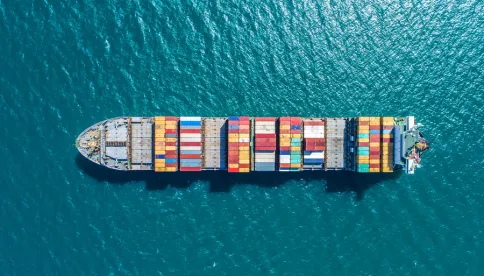The news from Texas over the last few days has reminded us that a single storm can flood entire cities, shut down factories, cut off warehouses, wash trucks off the road, close airports, and essentially bring an entire supply chain to a screeching halt.
What happens to supply contracts then? There is law on this point, but law alone is not always helpful. In most US states, UCC Section 2-615 allows sellers to delay or cancel delivery if “performance as agreed has been made impracticable by the occurrence of a contingency the non-occurrence of which was a basic assumption on which the contract was made.” In practice, this “impracticability” defense can be difficult to exercise. It seems to clearly apply to unforeseeable, “black swan” events: an airplane crashing into your warehouse is not the sort of thing that you would assume might occur when entering into a contract. Weather events can be more difficult to categorize. Hurricanes are a regular occurrence on the Gulf and Atlantic coasts of the United States, so a customer might argue that a supplier in Houston or Miami should have considered hurricane risk when agreeing to supply products from that location.
The gaps in the law suggest why supply contracts still routinely contain detailed force majeure clauses, with a long list of contingencies and a statement that performance can be excused in the event of any of them. It is important for both sellers and buyers to consider these carefully in the context of their particular supply relationship.
First, consider who and what should be protected. The UCC’s protection is only for the benefit of sellers, but a buyer might also need to invoke force majeure if, for example, flooding cuts off access to their only warehouse. The UCC’s protection is limited to delivery of goods, but other obligations in a supply relationship might also be affected by a natural disaster or other contingency; on the other hand, some obligations, such as payments of money, might be important enough that each party should be forced to ensure that they are performed.
Mitigation measures should also be considered. In an ideal world, both parties should be making efforts to mitigate the effects of the unexpected by installing backup equipment, taking out insurance, and other common-sense strategies. An aggressive contract drafter should consider requiring the counterparty to undertake specific mitigation measures in the text of the agreement. Another approach is to exclude certain risks from force majeure protection. If availability of raw materials is not an excuse to claim force majeure, the supplier will need to come up with stockpiles or contingency plans to ensure an ongoing supply. It can be useful to include a mechanism for crisis coordination between the parties, so that the parties have a formal means to assist each other in mitigating the impact of the event.
Supply chain intermediaries need to consider how an upstream supplier’s declaration of force majeure (or outright breach of contract) will affect downstream customers. Contracts often do not expressly mention or consider the impact of upstream or downstream force majeure events. Depending on what customer contracts say, an intermediary can be left with responsibility to deliver product on time even though their supplier has incurred an excusable delay.
Both buyers and sellers need to consider the impact of increased costs from force majeure events. Most force majeure clauses only affect timing of performance, and do not give protection from increased costs of performance due to force majeure events.
Finally, beyond the contract, all companies need to consider how to manage their response to force majeure events in light of their contractual obligations. It is often vital to communicate with counterparties, and to gather and maintain evidence of both the impact of the contingency, and the mitigation efforts that were undertaken before and after the event. This can help forestall breach of contract claims, and more importantly, can help to maintain the supplier-customer relationship through a difficult time for both parties.



 />i
/>i

